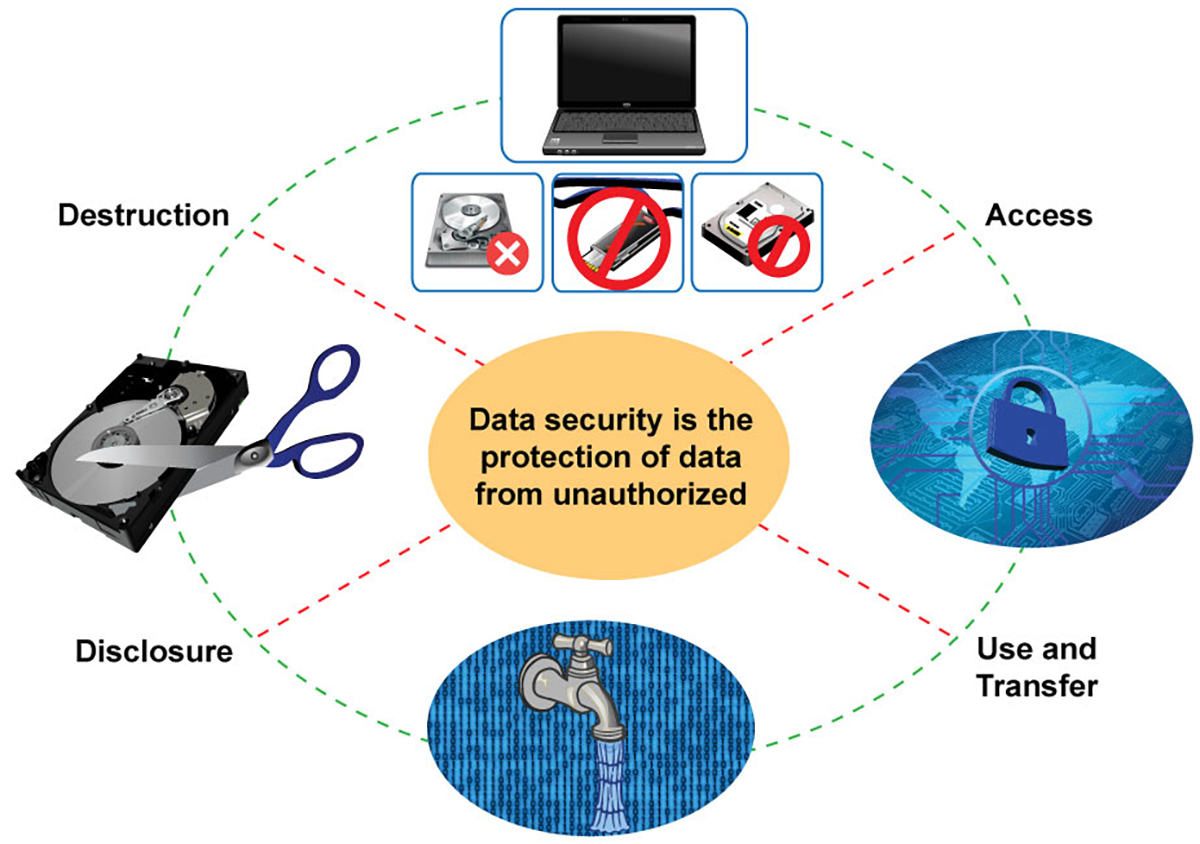The Crucial Nature of Data Destruction in Upholding Computer Safety And Security Providers and Protecting Versus Unauthorized Gain Access To
In an age where information breaches and identity theft are increasingly prevalent, the value of effective information destruction can not be overstated. Various methods, from information cleaning to physical damage, serve as important safeguards versus unauthorized gain access to.
Significance of Data Damage
In an increasingly electronic globe, the importance of data damage can not be overemphasized. As companies accumulate substantial amounts of sensitive details, the prospective repercussions of falling short to appropriately get rid of and take care of of that information become increasingly severe. Information violations, identity theft, and corporate reconnaissance pose considerable risks, highlighting the need of effective information devastation practices.

Furthermore, as technology advances, so also do the techniques by which destructive actors look for to make use of sensitive details. Organizations has to stay positive and alert in their information devastation approaches to secure against these evolving threats. By focusing on information damage, companies not just secure their possessions but likewise foster count on amongst clients and stakeholders, showing a commitment to liable information management and security techniques.
Methods of Effective Information Destruction
To guarantee the complete and irreversible devastation of delicate information, organizations can employ a range of efficient techniques customized to their particular demands. Among the most common techniques is data cleaning, which involves using specialized software application to overwrite existing data several times, making healing essentially impossible. This is particularly useful for hard drives and solid-state drives, where standard deletion methods are poor.
An additional effective method is degaussing, which utilizes solid electromagnetic fields to disrupt the magnetic domain names on storage space media, making the information irretrievable. This approach is particularly fit for magnetic storage space tools, such as disk drive and difficult disks.
Physical damage is additionally a viable alternative, entailing the shredding, squashing, or incineration of storage space gadgets. This technique assurances that data can not be recouped, making it optimal for organizations managing highly sensitive info.

Conformity With Data Protection Laws
Organizations should not only focus on effective information damage approaches but additionally make sure compliance with information defense regulations that regulate how sensitive details is handled and gotten rid of. Complying with these regulations is essential for preserving and protecting personal information consumer trust fund. Regulations such as the General Information Security Regulation (GDPR) in the European Union and the Wellness Insurance Coverage Transportability and Liability Act (HIPAA) in the USA impose rigorous guidelines on data administration, which include requirements for the safe disposal of delicate info.
To achieve conformity, organizations have to implement thorough information destruction plans that line up with these lawful frameworks. go now This includes determining information that requires damage, developing protocols for protected methodsâEUR" such as shredding physical media or using software that satisfies market criteria for data wipingâEUR" and preserving comprehensive records of destruction activities. Regular audits should be carried out to ensure adherence to these policies and to recognize any kind of prospective areas for improvement.
Failure to adhere to information protection regulations can lead to substantial lawful ramifications, including large penalties and damages to a company's reputation. Integrating conformity into data destruction methods is not only a legal responsibility however likewise a critical element of a robust information safety and security strategy.
Repercussions of Poor Information Handling
Poor data handling can bring about serious consequences that expand past instant functional setbacks. Organizations might deal with significant financial losses as a result of information breaches, which typically lead to pricey removal initiatives, lawful fees, and regulatory fines. These economic implications can strain resources and hinder development, eventually impacting an organization's profits.
Additionally, bad information handling can seriously damage an organization's online reputation. Customers, companions, and stakeholders might lose count on an entity that stops working to safeguard sensitive info, resulting in reduced customer loyalty and prospective loss of business chances. This erosion of trust fund can take years to reconstruct, if it can be recovered whatsoever.
Furthermore, organizations might encounter lawful ramifications emerging from non-compliance with data defense policies. Such violations may lead to examinations and penalties, compounding the financial problem and additional tarnishing the organization's image.
In the world of cybersecurity, insufficient information monitoring practices can develop susceptabilities that make systems more prone to unapproved accessibility and cyberattacks. Ultimately, these effects emphasize the crucial importance of implementing robust data dealing with treatments to protect delicate info and preserve organizational stability.
Finest Practices for Secure Data Disposal


Firstly, information should be identified according to its sensitivity. Sensitive details requires a lot more rigorous disposal approaches, such as shredding physical records and using sophisticated software program for digital information cleaning. Utilizing qualified data devastation services guarantees conformity with market laws and criteria.
Secondly, companies should implement an information disposal policy that mandates routine audits. This plan should detail the treatments for data retention and destruction, ensuring that out-of-date data is taken care of without delay and safely. Training employees on these protocols is important to fostering a culture of security awareness.
Finally, preserving in-depth documents of disposed data boosts responsibility and offers a clear audit click for source trail. This paperwork should consist of the kind of information destroyed, the approach used, and the date of disposal.
Verdict
Embracing durable approaches such as information wiping, degaussing, and physical destruction, together with compliance with laws like GDPR and HIPAA, is vital for securing sensitive info. Disregarding proper information disposal methods can lead to serious effects, consisting of information violations and lawful effects.
In a period where information violations and identification theft are significantly prevalent, the relevance of efficient information devastation can not be overemphasized. data destruction. Information breaches, identity theft, and business reconnaissance posture considerable hazards, emphasizing the requirement of effective information damage methods
Compliance with laws such as GDPR and HIPAA mandates that organizations implement strict data security procedures, including the secure devastation of data link at the end of its lifecycle.
By focusing on information destruction, firms not just shield their assets however likewise foster trust fund among clients and stakeholders, demonstrating a dedication to liable data monitoring and safety techniques.
Organizations should not just focus on effective data destruction techniques yet additionally make sure conformity with data protection policies that govern just how delicate information is managed and disposed of.